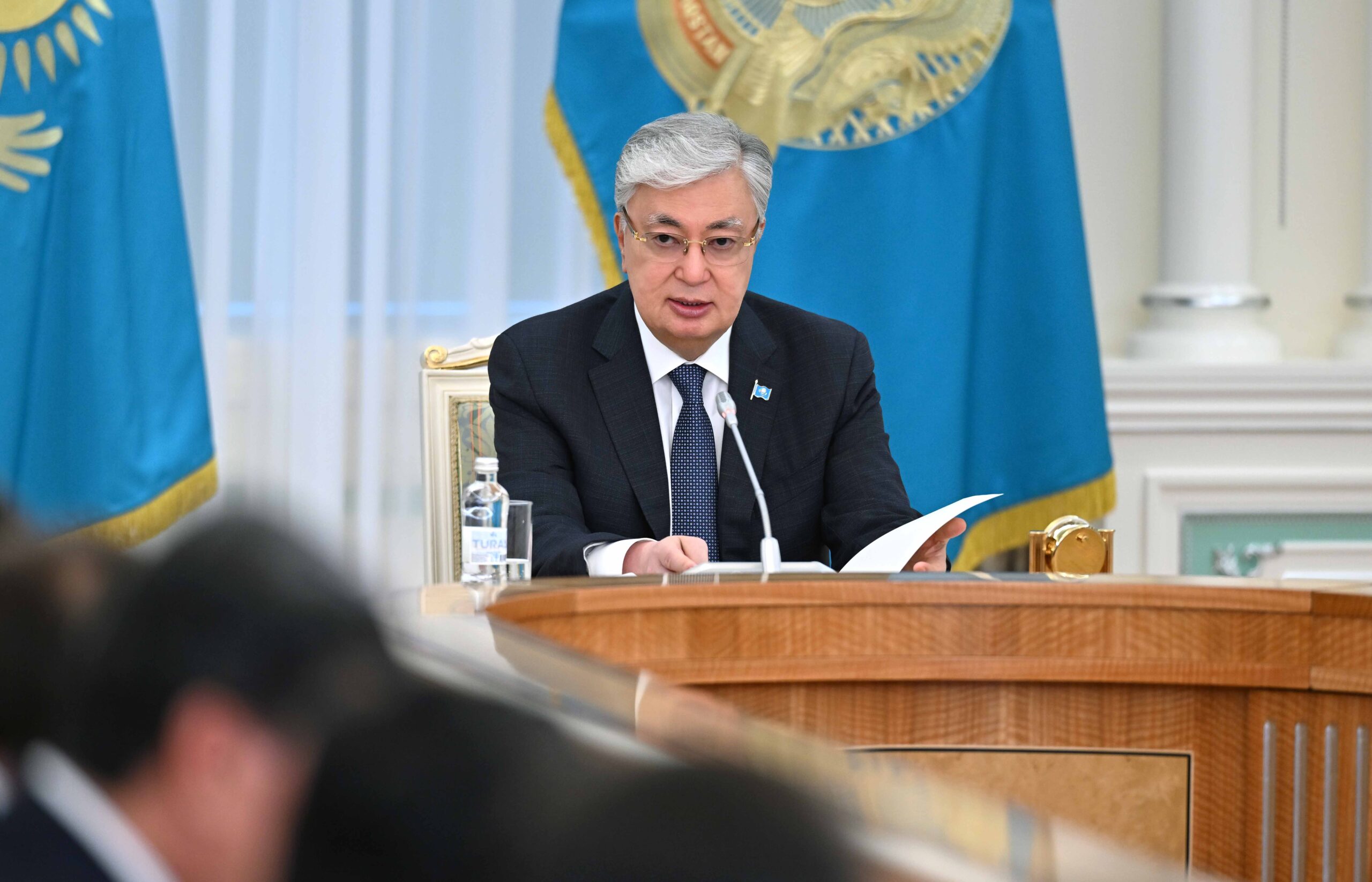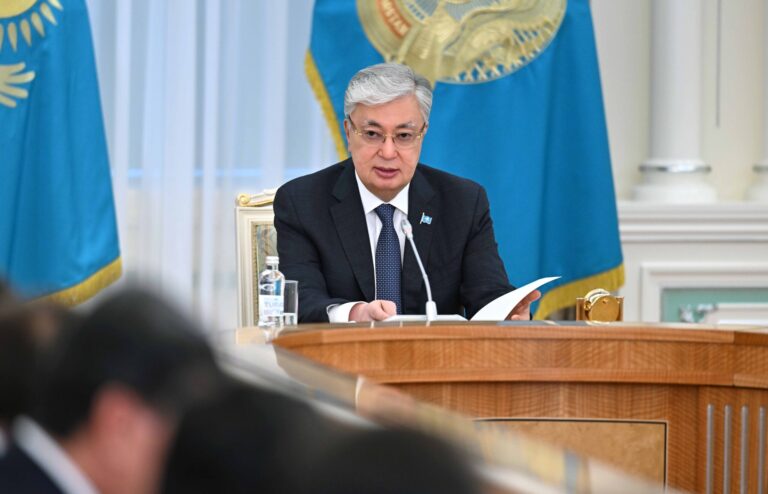ASTANA – President Kassym-Jomart Tokayev highlighted weaknesses in Kazakhstan’s tourism industry and outlined a strategy to address them during a meeting with government officials on June 13.

Kassym-Jomart Tokayev. Photo credit: Akorda
In a press statement issued by Akorda, President Tokayev acknowledged that Kazakhstan has the necessary resources to develop various forms of tourism, including eco-tourism and business tourism, but noted that the industry’s share of the national economy has fallen from 3.7 to 3.2 percent over the past four years, almost one-third of the world average.
The president made increasing the investment attractiveness of Kazakhstan’s tourism sector a priority, noting that the World Economic Forum ranked Kazakhstan 70th out of 119 countries in terms of the development of the tourism business environment.
“They are [investors] “All the tourism industry needs is infrastructure support. Transparent and stable conditions need to be created to attract investors to the tourism industry. The government, together with local authorities, should start by digitizing resort development master plans and ensuring open access. Potential investors should be given the opportunity to receive updated information on available land parcels,” he said.
President Tokayev also stressed the need to attract foreign IT experts to Kazakhstan and instructed the government to launch special programs such as digital nomad visas and digital nomad residency by October.
Citing weak transport infrastructure as a major problem, he directed the government to renew rail cars within the next five years, upgrade railway stations, increase the number of comfortable train carriages, and complete highway construction and upgrade projects by the end of this year.
President Tokayev also noted that low-cost airlines currently account for only 21 percent of passenger air traffic in Kazakhstan, prioritizing expanding their presence on popular routes.
The minister noted that this year has been declared the year of Kazakhstan’s tourism in China and outlined several tasks to prepare border settlements to receive tourists, including completing the modernization of Bakhty and Khorzhat border crossings and establishing constant monitoring of tourist safety.
The President also addressed technical infrastructure problems in tourist destinations, stressing the need for a separate budget program to provide tourist destinations with basic services such as electricity, sewerage, treatment plants, drinking water and access roads.
Tokayev criticized the government’s plan to simultaneously develop 20 tourist sites across the country, calling it an inefficient approach that would spread limited national resources. He suggested instead focusing on the most promising destinations that could become global tourist landmarks, such as the mountainous areas of Almaty region, beach tourism in Mangistau and the resort of Shchuchinsk-Bulabay.
He highlighted Almaty’s role as the center of tourism development in Kazakhstan, accounting for a significant portion of the country’s overall tourists, and stressed the need to further develop the city’s tourism infrastructure to accommodate the growing number of tourists.
The President called on the government and Mangistau regional administration to attract international hotel and restaurant brands and franchises to improve the quality of tourism infrastructure, and suggested revising Aktau’s master plan to develop coastal resorts following the example of Dubai and Baku, increasing air links to Aktau, and accelerating the development of the Kenderli resort area.
President Tokayev also cited the unique natural, historical and cultural heritage of the Shchuchinsk-Bulabay resort region as a valuable asset and gave orders to speed up the development of its infrastructure.
He stressed the importance of using major international events hosted in Kazakhstan, such as the upcoming 5th World Nomad Games, to showcase the country’s unique traditions, culture and sporting achievements.
Focusing on environmental issues, the President stressed that “it is unacceptable to destroy nature in the name of tourism development. ” He stressed the need for environmental protection activities such as the “Taza (Clean) Kazakhstan” campaign, saying the success of such efforts depends primarily on the awareness and responsibility of the people.

